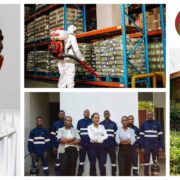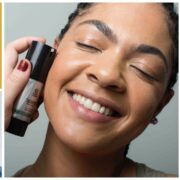by Lori Milner
The relationship with yourself is the foundation upon which every other aspect of your life develops. Your health, wellbeing and happiness are directly proportional to how you treat yourself. If you want a different life, it’s nothing to do with more money or career success. It is all about making decisions that are in your best interest. I remember asking my coach for the unconditional self-love and acceptance checklist; I wanted an excel spreadsheet with a bullet list I could work through and tick off each item. By the time I’m done, voila – a new friendship with myself!
Clearly, this is not the way the story ends. Life doesn’t work like that. It has been my journey to move from conditional love and acceptance to an unconditional friendship, and I can tell you it’s a remarkable voyage. Here are some of the tools I have learned along the way that can help you to make this critical shift in your own life:
Adopt an attitude of unconditional friendliness
I know self-acceptance is a daunting concept, so if I throw in unconditional self-love on top of this, you will stop reading. Unconditional friendliness is more palatable and easier to digest. If you think about your best friend or partner, what is it about them that you love? Traits like unconditional love, acceptance, trust, dependability and non-judgement may come up for you. In a nutshell, they have your best interest at heart. The challenge is can you flip this and treat yourself with the same warmth? This is demonstrated by making decisions in your own best interest. If you are tired, do not grind through your fatigue. If you are sick, give yourself some space to recover.
Ditch the guilt, take the time for yourself with no conditions, and you will experience gentler days.
Spend time with yourself
If you think of any relationship in your life, be it romantic or a friendship, how did that relationship develop? You spent time together and got to know them. After a while, trust matures, and the friendship evolves. Part of growing this relationship is nurturing it with continual communication and expressions of love. Even if it’s a friendship, you send messages, meet for coffee and continue to take an interest in their life. You know where this is going. When did you last spend time with yourself? Alone? I mean intentional time to get to know yourself. You can do this through journaling, meditation or spending quiet time in nature.
Unfortunately, if you say that you run or exercise alone, it doesn’t count because you drown out your thoughts with music or an audiobook. It’s like watching a movie with someone; you are there physically but not connecting with them. If you want to develop a friendship with yourself, you need to know yourself. I had a discussion with a friend about attending a meditation retreat. We discussed some options, but she made a profound comment – “I would never do a silent retreat because I don’t like myself enough to spend time with my thoughts”. You do need to go to the lengths of a silent retreat but consider spending some quiet time alone with your thoughts and a journal. When you can put your thoughts onto the page, be it your fears, goals or dreams, you can begin to get out of your way and create the life you want:
Here are some journaling prompts you can use to help you understand yourself better:
-
If you could only use five words, how would you describe yourself?
-
What is the most common negative thought you have about yourself? What would the positive version of it be?
-
What are you most grateful for?
-
What did you say yes to this week/month/year that you probably should have said no to?
-
Which qualities do you most admire in others that you wish you had yourself?
-
How can you take better care of yourself? How will you make that happen?
-
What did you learn about yourself this week/month/year?
-
How can you step out of your comfort zone more?
-
Which goals did you accomplish this week/month/year?
-
Which goals didn’t you accomplish this week/month/year? Why do you think that was?
-
What does success look like to you?
-
What motivates you?
-
Who inspires you the most? Why is that?
-
Who do you hope to become in the next 12 months?
-
What do you want to have accomplished by this time next year? In 3 years? 5 years? 10 years?
-
What one thing have you wanted to do but not yet been brave enough to try?
-
Name one thing do you want to achieve this year more than anything. How can you make this happen?
-
What is stopping you from achieving your goals?
-
What actions can you take this week/month/year to get you closer to your goals?
Drop the carrot and stick approach to recovery
In his brilliant TED talk, The Puzzle of Motivation, Daniel Pink reveals how science has proved that the carrot and stick approach to motivation does not work. A big reward will not drive greater productivity; it sabotages it.
Why do you use the same approach for yourself? The current mental chatter is, “If I work hard in the week, then I will earn time to relax on the weekend”. But what happens if you don’t finish all your work? Not because of lack of effort but most likely unexpected circumstances, or you are slave-driving yourself with unrealistic deadlines. Are you going to deprive yourself of your recovery time? Can you reward yourself with a weekend you look forward to despite how many items you ticked off on your to-do list? You do not need to earn the right to be friendly and have compassion towards yourself —so drop the carrot and stick approach to recovery. True self-acceptance means you do not need to earn your kindness. All you can do is make progress, acknowledge your wins and remind yourself you are doing the best you can with the resources available to you now. After work and on weekends, your downtime is your opportunity to recharge, indulge in your favourite activities, and spend time with people you love. Don’t give away your ‘yes’ too quickly and over commit to arrangements that leave you feeling depleted and resentful.
Replace self-criticism with self-compassion
Self-compassion is the compass to unconditional self-acceptance. It is also the ultimate vaccine. You can get the flu vaccine and still get the flu, but your symptoms won’t be as severe, and you will recover quicker. It is the same with self-acceptance. Mistakes and failures are part of life; it’s how we grow. Your self-talk will directly influence how resilient you will be to move through the challenge. Rather than adopt a self-critical approach, adopt a learning mindset. Remind yourself that you made the best decision you could at the time with the resources and information available to you. Knowing what you know now, what can you do differently next time?
The kinder you are to yourself in the face of challenges and setbacks, the quicker you will recover and bounce back with even more strength.
Show up as your authentic self, not your perfect self
When you wake up in the morning, is your first thought – what should I do today? If you answered yes, this is a warning bell. The word ‘should’ comes with baggage. There is anxiety attached to ‘should’ because what if it’s the wrong thing? What if I fail? What if I’m not perfect? When you reframe the question to ‘what do I want to do?’, you operate from your authentic self. It’s a place of creativity and authenticity; it’s not fear-driven.
When you ask yourself what you want to do, it permits you to tackle the project in your unique way. This ability to trust yourself is the most authentic sign of self-acceptance.
Do not link your self-worth to external factors
Often we link self-worth to something external such as money, achievement, a title or material possessions. Linking your self-worth to things beyond your control is an external locus of control. How often do you link your self-worth to numbers? The number on the scale, the number in your bank account or the number of friends on your socials? This is not sustainable because you cannot control any of this, and it becomes an internal narrative of ‘When I make X amount or reach this target, then I’ll be successful or even worse — then I’ll be happy’.
Instead of seeking approval from external factors and people, start to turn inwards. Consider the different roles you play — how can you link your self-worth to other areas of your life instead of only work? Your role as a partner, parent, friend, teammate, or in your community? Helping your kids with home-schooling and keeping a calm household is essential as your work commitments. When you can generate self-worth from these activities, you will not perceive this time as wasted but a crucial part of the day. Once you can grant yourself the approval you crave, your self-acceptance becomes unconditional despite external factors.
Acknowledge your wins
When you are riddled with self-doubt and self-judgement, take a moment to reflect on your past wins. Courage supersedes confidence. Confidence comes from your actions; when you can look back and see what you have achieved, you can use this evidence that you are capable of moving ahead in your future goals. Recognising past achievements and internalising them is the journey to self-acceptance. When you disregard your successes and brush them away because you are now looking at the next goal to justify your self-worth, you inevitably create imposter syndrome.
Imposter syndrome is the belief that you will be found out that you don’t know anything, that you aren’t qualified for the role or don’t deserve to be there.
When you celebrate each milestone, you internalise it and become part of who you are. You incorporate the growth into yourself, and this is where your confidence begins to soar. Acknowledging your wins is not mediocrity; it doesn’t mean you are complacent with your achievements. It is the fuel that will catapult you into your future successes and give you the confidence to approach any goal because you have a proven track record.
The ultimate question to start your day
If you are still unsure of where to begin, how about starting each day with this question: How can I be kind to myself today?
-
Kindness means not making your recovery time conditional on how much work you achieve in the week.
-
Kindness means taking a lunch break when you need one.
-
Kindness means inserting yourself into your calendar to do something that will give you joy.
-
Kindness means dedicating space in your day for your self-care without guilt.
-
Kindness means taking time for a non-work-related project like painting, baking, gardening, scrapbooking, riding, photography – you fill in the blank.
-
Kindness means creating weeks you look forward to rather than waiting for your next leave day.
-
Kindness means allowing your inner cheerleader to take the driver’s seat rather than the inner critic.
Adopting a lens of unconditional friendliness and kindness may feel uncomfortable at first. It feels like you are doing something wrong, but it’s the first time you are doing it right. How can you reframe the emotion of guilt, so it is no longer something to make you feel bad but to remind you that you are honouring your own needs and you are on the right track?
When you can become your own best friend and shift into self-acceptance, your whole world will begin to shift.
Here’s to being your own best friend,
Warm wishes,
Lori



















